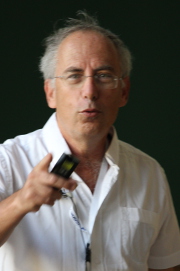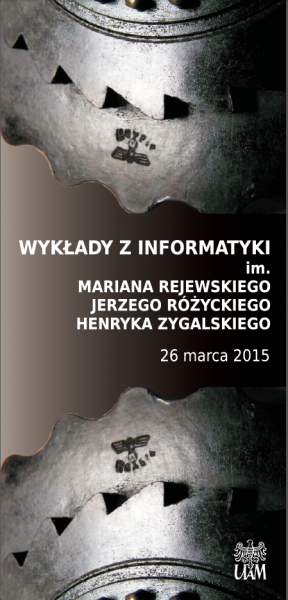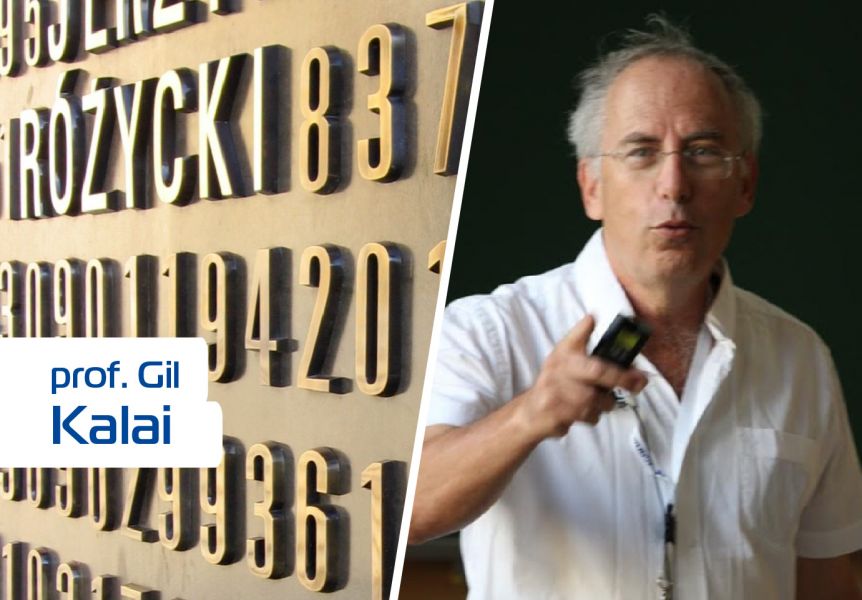Date: thursday, 26.03.2015, 15:30
Speaker: prof. Gil Kalai
Title: What can we learn from a failure of quantum computers
Abstract: Quantum computers are hypothetical devices that enable us to perform certain computations hundreds of magnitude of order faster than digital computers. This feature, coined “quantum supremacy”, could be manifested by experiments in the near future through, for example, BosonSampling, a very simple setting of non-interacting bosons. In the lecture I will give a brief background about computation - classic and quantum, with an emphasis on the role of determinants and permanents.
Next I will explain reasons to believe that computationally superior quantum computers cannot work, and what predictions on quantum physics and on computations of natural systems are supported by the failure of quantum computers.
Video
Program
| 26.03.2015 r. | |
| 09:30 | Laying flowers at the monument to the Polish cryptologists |
| 15:00 | Before the lecture: Meeting at the faculty profesors' club |
| 15:30 | Gil Kalai What can we learn from a failure of quantum computers Hall A of Faculty of Mathematics and Computer Science |
Speaker
 Gil Kalai was born in 1955 in Tel Aviv. He studied at the Hebrew University of Jerusalem were he currently holds the Henry and Manya Noskwith Chair. He is also an Adjunct Professor at Yale University. He has held visiting positions at MIT, Cornell, IAS, KTH, Bell-Labs, IBM and Microsoft. Kalai has written over 70 scientific papers and is the author of a blog entitled Combinatorics and More. He is the recipient of the 1992 Pólya Prize, the 1993 Erdös Prize, the 1994 Fulkerson Prize and the 2012 Rothschild Prize.
Gil Kalai was born in 1955 in Tel Aviv. He studied at the Hebrew University of Jerusalem were he currently holds the Henry and Manya Noskwith Chair. He is also an Adjunct Professor at Yale University. He has held visiting positions at MIT, Cornell, IAS, KTH, Bell-Labs, IBM and Microsoft. Kalai has written over 70 scientific papers and is the author of a blog entitled Combinatorics and More. He is the recipient of the 1992 Pólya Prize, the 1993 Erdös Prize, the 1994 Fulkerson Prize and the 2012 Rothschild Prize.
An influential 1988 paper by Kahn, Kalai and Linial on Boolean functions gave an early application of Fourier analysis in theoretical computer science. Kalai, with various co-authors, has since applied Fourier analysis to the study of thresholds, influences, symmetries, noise, percolation and social choice. He has also worked on face-numbers and the diameter of polytopes and on randomized simplex algorithms. In 1993, Kalai and Kahn found a geometric object in 1325 dimensions that disproved the famous Borsuk’s Conjecture of 1933.








